Lord Owen explains that part of the problem is 1919 and the cynical dissecting of the Middle East between France and Britain along with the Americans. (Doc. MEMO)
By Amelia Smith
Middle East Monitor (MEMO)
Also Read: Nuclear Technology: Harm and Benefit from the Qur’anic Perspective
In a grand office close to Hyde Park, Lord David Owen draws my attention to the paintings on his wall. They depict the Battle of Navarino in Greece in which the Ottoman fleet was sunk by a combination of Russian, French and British forces. It paved the way for Greek independence from the Ottoman Empire’s occupation. “It’s a famous battle although nobody knows anything about it,” Owen explains. “It was called by the admiralty the untoward event. We were meant to be neutral, we sailed into this beautiful harbour and it was the last naval battle under sail. Ninety ships sunk. It had a huge impact on Greece.”
It’s fitting then that we are meeting to talk about the conflict in Syria, a war in which international players are also carving out their roles in a battle which started as a peaceful uprising by the people against the President. Two years later Bashar Al-Assad is pitted against various opposition fighters in a civil war, with no end in sight. Recently, in an attempt to find a political solution to the country, US Secretary of State John Kerry and Russian Foreign Minister Sergey Lavrov called the Geneva Conference, though the details of who will attend and on what conditions are the subject of on-going discussions.
Shortly before Kerry took the initiative to hold talks in Switzerland, Lord Owen published an article in the Guardian calling for a regional conference, owned by the region. Despite the fact that Geneva II does not really focus specifically on the Middle Eastern countries, it is important that everybody tries hard to make it work. “That’s the only game in town,” he tells me. “That’s the one we’ve got to try and make succeed and help in every possible way.” We can do this, explains Owen, by creating a dialogue and a structure for gradually building compromises.
The conference has already been postponed by a month and there has been very little in the way of fruitful negotiations. According to Lord Owen, it’s the UN that is the main problem because each of its five permanent Security Council members– all of which are playing a part in trying to bring this conference together – have “mishandled Syria” and been unable to agree for over two years on what part each will play. “It’s also a warning to the permanent five that they’ve got to start getting their act together,” he adds. Take, for example, China. “I would like China’s voice to be reflected in this conference. The only voice of those who are supporting non-intervention should not be Russia; China should be expressing its view and be open to discussion. A proper dialogue has to take place.”
Also Read: Gaza Cries Out, the World Stays Silent: A Wounded Humanity
Then of course there’s the difficulty of Iran, Israel and America disagreeing about who should be at the negotiating table. Owen believes that we’re long past fighting about which countries accept others to be present. “I wouldn’t have any nonsense about it; both are relevant and important. The fundamental thing is simple: is it regional? Yes. Are the 5 permanent members going to play a role? Yes. Their exact role? We don’t know.” But if they are reinforcing UN diplomacy in the shape of Lakhdar Brahimi then that could be very, very helpful, he adds on the subject of the UN and Arab League special envoy to Syria. Later, he explains that involving foreign ministers makes the conference much easier. It is still at a senior level but if there are no heads of states, and Al-Assad does not have to be there.
Syria is a complicated arms struggle in the sense that it’s both an uprising of people against their regime as well as a civil war, which is all the more reason to come to an agreement as quickly as possible. “These are very difficult to resolve,” he acknowledges in relation to the ethnic dispute underpinning the struggle. “The more the ethnic partition lines get solidified, the harder it is to break it up, the harder it will be to retain Syria as a single country, and the more likely it will end up with some measure of partition. So speed is important and compromise to get progress is important. You haven’t got the luxury of just letting it go; it’s already had no progress for two years.”
What also complicates matters is Foreign Minister William Hague’s recent decision not to renew the arms embargo on Syria, and Russia’s threat of S-300 systems to be delivered to Al-Assad: “In my view, it’s always better if the main sponsors of the conference are not selling arms if they can avoid it,” says Lord Owen. Instead, he explains, it would be best if what is decided regarding arms is done on the basis of UN resolutions. “I would be very wary about becoming arms suppliers and negotiators,” he points out.
This, along with America’s involvement, has been the subject of speculation about ulterior motives and agendas. “Look, everybody’s got agendas; some are hidden and some are not hidden.” He explains that part of the problem is 1919 and the cynical dissection of the Middle East between France and Britain along with the Americans. “You need to switch forward into the 21st century and get a regional solution. I would pitch Syria within the context of the region and try to get a resolution that allows quite a number of different complicated regional issues to be resolved at the same time in different working groups.”
Also Read: Indo Defence Expo and Forum; Sharing Responsibility of Humankind and Environment
Earlier this week, France’s foreign minister confirmed that the nerve agent sarin had been used in Syria. Before the revelation, Lord Owen wrote that, for some, evidence of chemical weapons warranted military intervention. “We are duty bound to respect international treaties on weapons of mass destruction and chemical and biological weapons; there’s a very clear instruction about them. The problem in the midst of a civil war is to find out who’s actually used them. There seems very little doubt that sarin gas has been used… people talk about red lines and crossing them, well who has an interest in dragging people across red lines? You have to look at that,” he insists.
Owen goes on to explain that the condemnation of the use of chemical weapons must be “absolute”. For many years in relation to the Iran-Iraq war, “the west’s position was outrageous”. Britain knew such weapons were being used by Saddam Hussein against the Iranians and didn’t say a thing. “That was one of the worst episodes of international duplicity and Britain was responsible for it as well. I was absolutely appalled during that war and it also sets a very unfortunate precedent. You keep a war going really just by topping up either side. The way to burn out wars is to bring them to a negotiated settlement,” he continues. “It’s not fuelling it, it’s not trying to keep the level of armaments up so that neither side wins which was basically the cynical exercise which was conducted during the Iran-Iraq war and which had huge consequences. We’re still living with them.”
The conflict in Syria stopped being just about Syria a long time ago, considering the country has long had a border dispute with Israel. Recently, Hezbollah and Lebanon have been drawn into the fighting and President Obama has delivered F-16 aircraft to Jordan. “These issues are very complex,” says Owen, “as each hinges on the other, each builds on the other and you’ve got to have dialogue.” He points out that if negotiations between Israel and Palestine take place alongside those in Geneva, the conference may have an effect on the peace process; it’s a conflict whose resolution is long overdue.
Lord Owen explains that he used to be Chairman of a small company which sold strawberries in Gaza to try and encourage a small industry there. Yet all these years later still no progress has been made with the Strip, in terms of agriculture, infrastructure or any kind of industry. “Gaza is far too small for its population. It needs space, it needs to breathe. I always hoped that Egypt would give it that space and make available some land so that it could develop.”
Also Read: Safiya Saeed: From Somali Migrant to First Hijab-Wearing Mayor of Sheffield
What make it harder are Egypt’s financial problems, largely to do with the stagnant economy which has suffered hugely since the 2011 revolution. What makes it easier is that Hamas and Hezbollah now are less tied together and Hamas are more willing to participate in discussions with Egypt. “If I was Israel I personally wouldn’t get too fussed about that. If Egypt gets closer to Hamas and takes more interest in negotiations and is ready to use its expertise and influence, I would encourage that, quite frankly,” says the one-time Foreign Secretary.
As for Britain’s role, according to Owen there has been no progress or steps to improve the Israel-Palestine peace process in the past decade. Take, for example, the on-going problem of the refugee camps, which could have been settled long ago, but instead have become a “political tool” which people have forgotten about now. “British foreign policy has just been purely and simply to give Israel what it wants,” he adds. (T/P02/E1)
Mi’raj News Agency (MINA)
Source: http://www.middleeastmonitor.com/resources/interviews/6228-former-foreign-secretary-lord-david-owen-talks-to-memo-on-the-conflict-in-syria#sthash.cmZ4E5yO.dpuf
Also Read: Why Food Safety is Essential During Hajj Services?







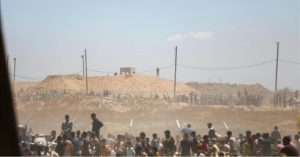

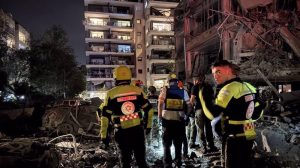
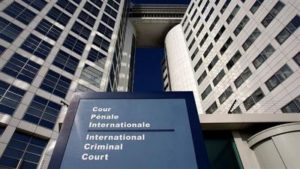
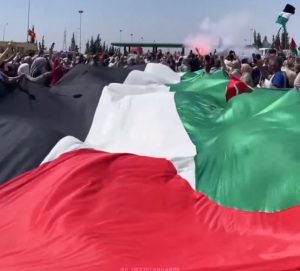

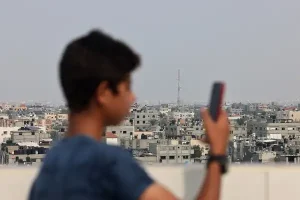



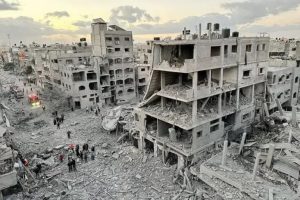
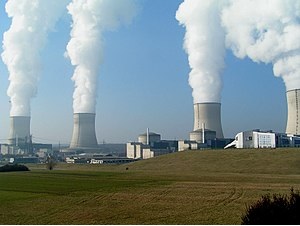
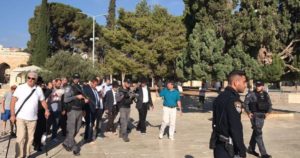





 Mina Indonesia
Mina Indonesia Mina Arabic
Mina Arabic